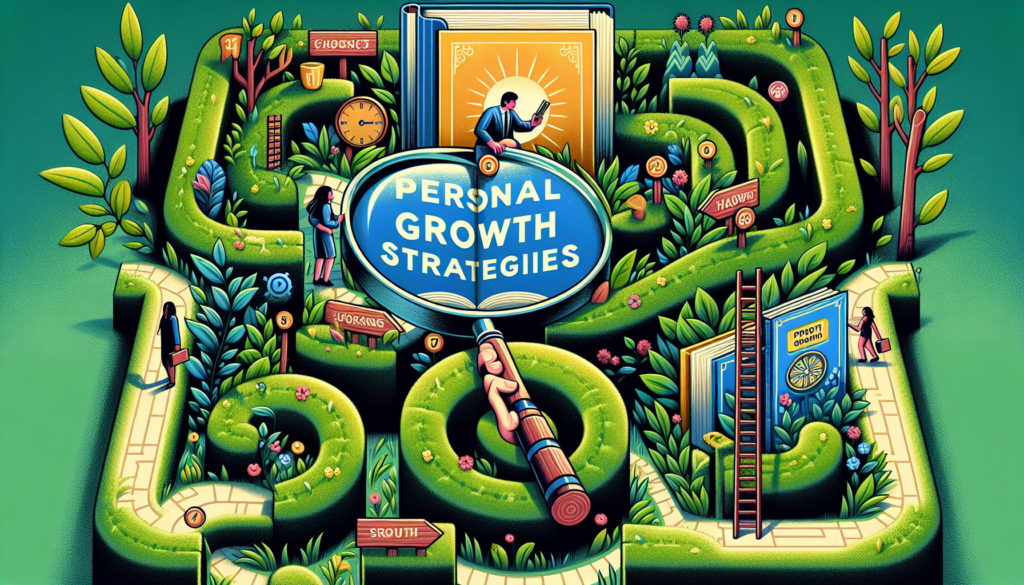Mastering Decision-Making: The Art of Making Informed Choices
Decision-making is an integral part of our daily lives. From choosing what to eat for breakfast to making crucial business decisions, we are faced with a myriad of choices every day. The ability to make sound decisions can greatly impact our personal and professional success. However, mastering the art of decision-making is not always easy. It requires a combination of critical thinking, problem-solving skills, and emotional intelligence. In this article, we will explore the intricacies of decision-making, delve into various techniques and strategies to enhance this skill, and discuss the importance of making informed choices.
The Psychology of Decision-Making
Understanding the psychology behind decision-making is crucial in mastering this skill. Our decisions are often influenced by cognitive biases, emotions, and external factors. One of the key concepts in decision-making psychology is the dual-process theory, which suggests that we make decisions using two distinct systems System 1, which is fast, intuitive, and emotional, and System 2, which is slower, analytical, and rational.
For example, when faced with a complex decision, our System 1 may rely on heuristics or mental shortcuts to quickly arrive at a conclusion. However, these shortcuts can sometimes lead to errors in judgment. On the other hand, engaging System 2 allows us to critically analyze the situation, consider all available information, and make a more informed decision. By understanding these cognitive processes, we can learn to navigate our decision-making more effectively.
Decision-Making Models
There are several decision-making models that can help individuals and organizations make better choices. One of the most well-known models is the rational decision-making model, which involves identifying the problem, generating alternative solutions, evaluating these alternatives, making a decision, and implementing it. This model emphasizes logical thinking and systematic analysis of the problem.
Another popular model is the bounded rationality model, proposed by Herbert Simon, which suggests that individuals make decisions based on limited information and cognitive resources. This model acknowledges that decision-makers may not always have the time or resources to analyze every alternative thoroughly. Instead, they rely on satisficing choosing the first satisfactory option that meets their criteria.
Emotional Intelligence and Decision-Making
Emotional intelligence plays a crucial role in decision-making. The ability to recognize and manage emotions can help individuals make more balanced and informed decisions. Emotionally intelligent individuals are better equipped to handle stress, remain objective in their assessments, and consider the impact of their decisions on others.
For example, a leader with high emotional intelligence is more likely to make decisions that benefit the team as a whole, rather than solely focusing on their personal interests. By cultivating emotional intelligence through self-awareness, self-regulation, empathy, and social skills, individuals can enhance their decision-making capabilities and build stronger relationships with others.
Data-Driven Decision-Making
Data-driven decision-making is a strategic approach that involves using data and analytics to inform decision-making processes. In today’s digital age, organizations have access to vast amounts of data that can be used to gain valuable insights and make informed decisions. By leveraging data analytics tools and techniques, businesses can identify patterns, trends, and correlations that can guide their decision-making.
For example, a retail company can analyze sales data to determine which products are performing well and which are underperforming. Based on this information, they can make informed decisions about their inventory, pricing strategies, and marketing campaigns. Data-driven decision-making not only improves the accuracy of decisions but also enhances organizational performance and competitiveness.
Decision-Making in Leadership
Effective decision-making is a critical skill for leaders at all levels of an organization. Leaders are often required to make tough decisions that can have a significant impact on the success of their team or company. The ability to make timely and well-informed decisions is essential for inspiring confidence, driving innovation, and achieving strategic goals.
Leadership decision-making involves considering various factors, such as the organization’s vision and values, stakeholder interests, risk assessment, and long-term implications. By involving key stakeholders in the decision-making process, leaders can gain valuable perspectives and build consensus. Additionally, adopting a collaborative approach to decision-making can foster a culture of trust, transparency, and accountability within the organization.
Ethical Decision-Making
Ethical decision-making is a critical aspect of decision-making, especially in situations where moral dilemmas are involved. Ethical decisions are those that align with principles of fairness, integrity, and social responsibility. When faced with ethical dilemmas, individuals must consider the potential consequences of their actions on stakeholders, society, and the environment.
One of the frameworks commonly used in ethical decision-making is the utilitarian approach, which aims to maximize overall happiness or well-being. Another approach is the deontological approach, which focuses on following moral principles and duties, regardless of the outcomes. By applying ethical principles and values in decision-making, individuals can uphold integrity, build trust, and contribute to a more ethical and sustainable society.
Decision-Making in Personal Life
Decision-making is not limited to the business world; it also plays a crucial role in our personal lives. From choosing a career path to making financial decisions, our choices impact our well-being and happiness. Mastering decision-making in personal life involves setting clear goals, prioritizing values, and considering long-term consequences.
For example, when making financial decisions, individuals need to consider their short-term needs and long-term financial goals. By creating a budget, saving for emergencies, and investing wisely, individuals can secure their financial future and achieve financial freedom. Similarly, in relationships, effective communication, empathy, and compromise are essential for making informed decisions that nurture healthy and fulfilling relationships.
Expert Opinions on Decision-Making
Experts in the field of decision-making emphasize the importance of critical thinking, emotional intelligence, and ethical considerations in making informed choices. According to Dr. Daniel Kahneman, a Nobel Prize-winning psychologist, individuals can improve their decision-making by recognizing and overcoming cognitive biases, such as confirmation bias and anchoring bias.
Similarly, Dr. Annie Duke, a former professional poker player and decision strategist, advocates for embracing uncertainty and making decisions based on probabilities rather than absolutes. By adopting a probabilistic mindset, individuals can make more flexible and adaptive decisions that take into account the uncertainties of the future.
Common Misconceptions about Decision-Making
There are several common misconceptions about decision-making that can hinder our ability to make sound choices. One of the misconceptions is the belief that decisions should be made quickly to avoid analysis paralysis. While it is important to make timely decisions, rushing into a decision without considering all available information can lead to poor outcomes.
Another misconception is the idea that decisions should be made based solely on intuition or gut feeling. While intuition can be a valuable tool in decision-making, it should be complemented by logical reasoning and critical analysis. By challenging these misconceptions and adopting a more balanced approach to decision-making, individuals can improve their decision-making skills and make better choices.
Conclusion
Mastering decision-making is a complex and multifaceted skill that requires a combination of cognitive abilities, emotional intelligence, and ethical considerations. By understanding the psychology behind decision-making, applying decision-making models, leveraging data and analytics, and considering ethical implications, individuals can make more informed choices in both their personal and professional lives.
Effective decision-making is essential for leadership, organizational success, and personal well-being. By honing their decision-making skills, individuals can navigate complex situations, solve problems creatively, and achieve their goals with confidence. Remember, every decision we make shapes our future, so choose wisely and master the art of decision-making.
Ultimately, mastering decision-making is a lifelong journey that requires continuous learning, reflection, and adaptation. By embracing uncertainty, seeking diverse perspectives, and staying true to your values, you can become a master of decision-making and lead a more fulfilling and purposeful life. So, the next time you are faced with a tough decision, remember to pause, analyze, and choose wisely. Your future self will thank you for it.
Mastering decision-making is not just about making choices; it’s about making informed choices that align with your values, goals, and aspirations. By cultivating the art of decision-making, you can empower yourself to take control of your life, seize opportunities, and create a future filled with success and fulfillment.
Remember, every decision you make shapes your destiny. So, embrace the power of decision-making, harness your inner wisdom, and embark on a journey of self-discovery and growth. The art of decision-making awaits you are you ready to master it?


